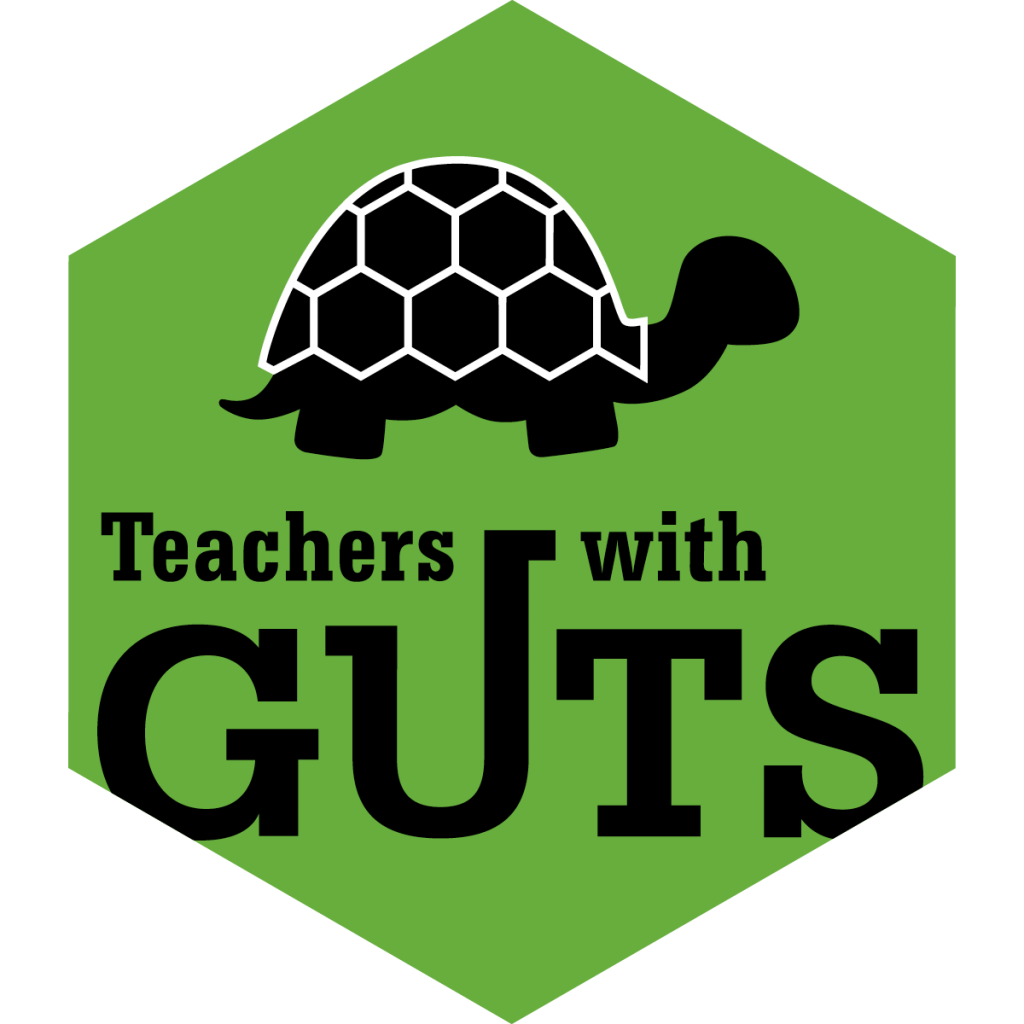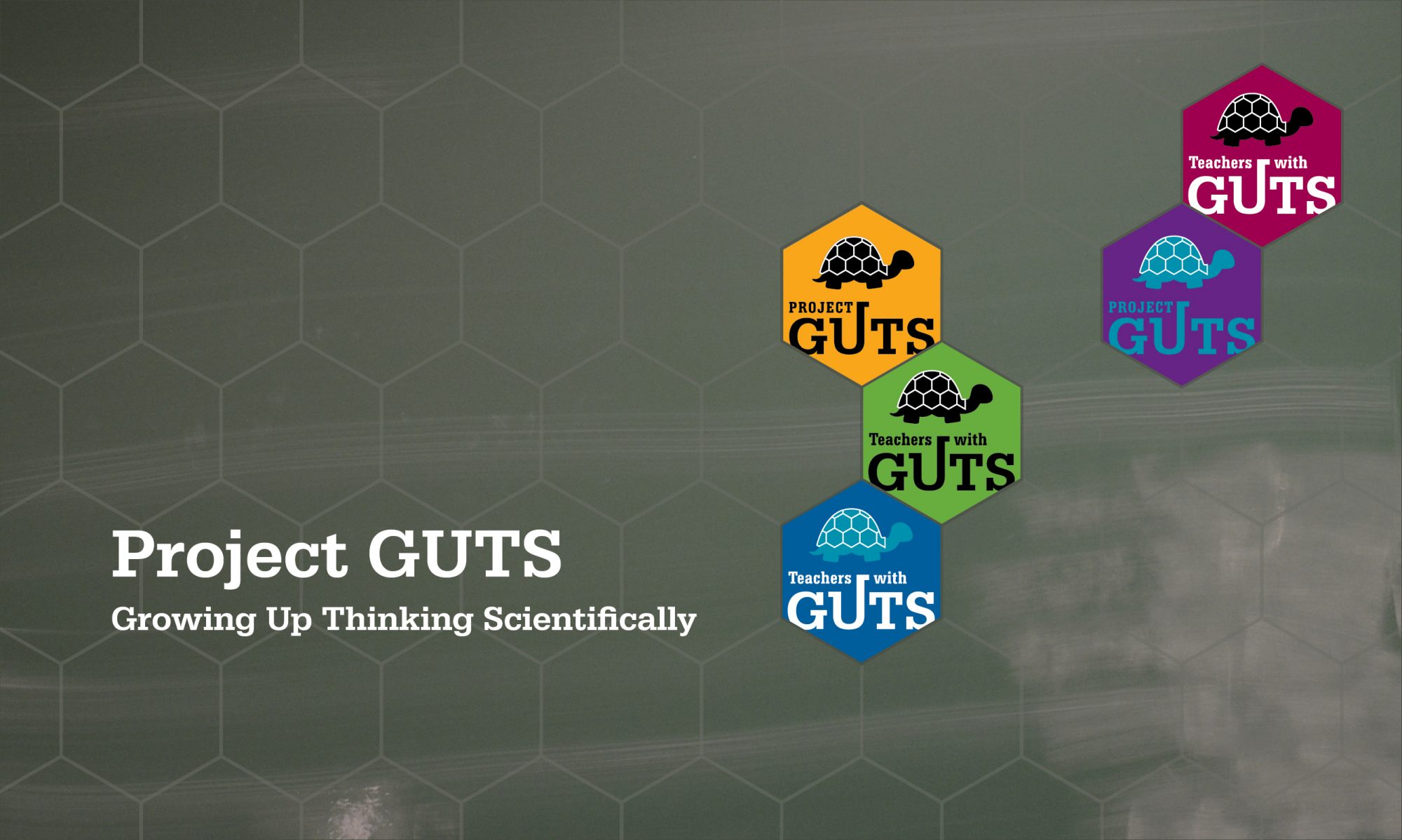Project GUTS — Growing Up Thinking Scientifically — is an integrated science and computer science program for middle school students serving schools and districts internationally. Growing up thinking scientifically means learning to look at the world and to ask questions, developing and using computer models that help answer questions through scientific inquiry, and using critical thinking to assess which ideas are reasonable and which are not. To grow up thinking scientifically means knowing science to be a computing-rich, dynamic, creative endeavor, a way of thinking, rather than a body of facts.
WE ARE PROJECT GUTS
Our Mission
Project GUTS’ mission is to prepare students for future endeavors in Science, Technology, Engineering, Mathematics and Computing by providing them with opportunities to build scientific inquiry skills and use technology to explore real-world problems. Project GUTS was designed for students from all different backgrounds to engage in scientific inquiry by investigating topics of interest to their local communities and sharing their experiments and findings in order to inform fellow students and community members.
Our Approach
- Attract students by making science and computing relevant and dynamic,
- Prepare students for future endeavors in STEM and computing fields,
- Retain student interest by offering open ended challenges,
- Assess how teachers’ participation in Project GUTS impacts how they think about and teach STEM and computing in the classrooms, and
- Enhance existing partnerships for program sustainability
The organizing framework for Project GUTS is the practice of scientific inquiry with agent-based models. The study of complex adaptive systems serves as a unifying theme for GUTS curriculum. Peer mentoring and community networks serve as project components designed to support students and teachers committed to teaching modern, computer-enabled scientific practices.
Making agent based modeling in StarLogo is an extension of programming in StarLogo—instead of having only one turtle in StarLogo, agent based models have many turtles! These turtles can represent chemical compounds, people, animals, or even ideas. Collections of turtles are used to model complex adaptive systems made up of many parts.
PROJECT GUTS IN ACTION
Promoting the Integration of Computer Science
Computer Science in Science: Project GUTS partnered with Code.org to deliver a science program that integrates computer modeling and simulation into Earth, Life, and Physical Science. Why Computer Science? We believe every 21st century student should have the opportunity to learn computer science. The basics help nurture creativity and problem-solving skills, and prepare students for any future career.
Use, Modify, Create
Project GUTS pioneered an approach to learning about and with computer models called “Use Modify Create.” In this progression students first learn to use and understand computer models then later adapt computer models to reflect their own interests, and finally, create new models from scratch all the while using computer models as an integral element of conducting scientific inquiry.
Facilitator Corps at Regional Hubs
Project GUTS has developed a corps of facilitators who are excited and well-prepared to lead our professional development workshops (online and in-person) at districts across the country (and a few are able to work internationally).
Teachers with GUTS Online Network — TeacherswithGUTS.org
Teachers with GUTS is Project GUTS’ new online network for teachers. Teachers who join our network can get answers to questions, help with code, and the latest resources and tools we produce. A practice space and social network complement the resources we share.

PROJECT GUTS OFFERS
Curriculum
Project GUTS’ award-winning curriculum makes science come alive through exciting explorations using computing models and simulations to learn about our world. Teacher-tested, district-approved, week-long modules and afterschool club units are available online and in print. Our curriculum features the use of an online programming environment that uses a visual block-based language; daily instructional lesson plans for teachers, videos, and supplemental extension resources; modular design that allows for a range of classroom implementation time; and lessons aligned to the Next Generation Science Standards (NGSS) and computer science (CSTA) standards.
Professional Development
In Project GUTS’ teacher professional development (PD) programs, computer science is a tool that supports more innovative explorations of STEM concepts using modern scientific practices. Professional development is offered as multi-day workshops, online courses, and practicum experiences for teachers. Workshops feature Interactive instruction from an experienced Computer Science in Science facilitator, including an introduction to computer science, pedagogy for teaching computer science, curriculum overview, and practice with the programming environment.
Afterschool Clubs
During semester-long units, students will investigate a problem, interview community members, gather data, and run experiments on computer models to better understand the problem being studied. Project GUTS facilitators and high school near-peer mentors will assist students in customizing existing models to reflect local conditions. Experiments conducted on these models may be used to test mitigation strategies and to determine the similarities and differences between the modeled phenomenon and the real world.
